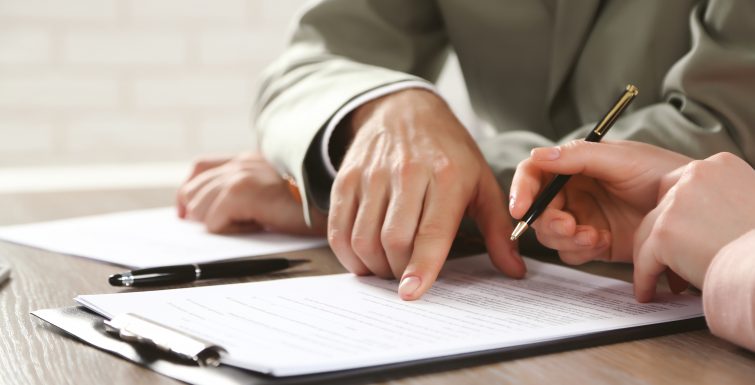Julie Entwistle, MBA, BHSc (OT), BSc (Health / Gerontology)
Over the last few months we have had the privilege of presenting to a multitude of Personal Injury Lawyers on the June 1, 2016 changes to catastrophic determination, most specifically on the Glascow Outcome Scale Extended (GOS-E). If you are working in motor vehicle accident (MVA) rehabilitation or personal injury law, this scale is one you need to be familiar with.
To qualify for catastrophic under the GOS-E, it speaks openly about changes to QUALITY and FREQUENCY of participation in pre-accident tasks under the facets of independence in and outside the home, travelling locally and abroad, productivity, social / leisure participation and relationships. Within this, it considers HOW OFTEN someone did something, but even bigger than that is FOR HOW LONG and at WHAT INTENSITY.
As OT’s working in this sector, it is important that we gather this information in great detail during our initial assessment to not only get a better picture of pre-accident lifestyle and function, but to create early records that could relate to catastrophic determination at 6 months, 1 or 2 years’ post-accident.
During a presentation, one lawyer questioned the “qualitative way” by which pre-accident information is usually gathered (by asking family or through client self-report). He asked if there was better evidence, “proof” if you will, that could speak objectively to “pre-accident function”. This was a great question because right now the only pre-accident “evidence” the industry tends to gather are medical records and these speak to health, not function (and the two can be very different). Function is best outlined by finding out how people spent their time – something that one would think would be difficult to objectively measure for the purpose of “evidence”, but let’s think again.
The evidence of how people spend their time is actually everywhere. My morning dog walk and sleep habits are tracked on my fit bit and transferred to my computer and phone. My car logs the kilometers I drive, and the repair shop inputs these with every oil change. The gym tracks my attendance. My phone apparently stalks me by recording everywhere I take it, the websites I visit, the apps I use and the people I speak to, text and email. The photos in my phone also tell the story of my life and where my time is spent. My computer records the number of emails I send and receive and the places I visit online. My emails are sorted and can detail the time I spend organizing and taking trips (local and abroad), socializing, and even my relationship communication habits. If I had a personal Facebook account this would detail for you the people I chat with, how often, and the places I visit, take photos and upload. Twitter, Instagram and Snapchat would do the same. But honestly most of the information about my time spent would be easily revealed through my financial records. Most of the things I do cost money. My credit card and bank statements will show you the frequency by which I get a latte, the costs for my gym program, the amount of shopping I do, the people I pay to help manage aspects of my house, the places I eat or indulge, the number of times I visit the movies or do something fun, the things I enroll my children in, etc. These will even tell you the therapies or treatments I might get privately that my doctor doesn’t even know about.
We know that being involved in the insurance system exposes aspects of people’s lives that they may not want to share. All privacy is forgone when you want and need help from an insurer, or when you want and need to sue someone who was at-fault for causing you injury and harm. Unfortunately, with the changes to Catastrophic Determination, the gap just widened in terms of the information that needs to be gathered and the “proof” that needs to be provided to access the benefits an injured person may need. However, the information is out there – little is sacred or private anymore.
If this is helpful, here is a list of information that could be gathered to support changes to FREQUENCY and QUALITY of participation in most activities before and after an accident. Getting someone’s personal records for the year prior to an accident, and then for the first-year post, will be highly informative, helpful and revealing…if they are agreeable to share:
Bank Statements / Financial Records will show MOST purchases related to social / leisure activities:
Memberships / clubs / subscriptions
Dinners / coffees / movies
Vacations
Shopping habits
Sports / fitness
Gas / driving / parking habits
Other places will also have records:
Gym / rec center attendance
Schools / school records
Employment records
Evidence of trips / vacations / social events on SM – FB, Twitter etc (before the accident)
Car / vehicle records – how often the car was driven based on KM’s
Points cards for anything like movies, Starbucks, Airlines, etc
Call / cell records and communication habits
Medical records
I hope this helps the lawyers and injured people of the insurance system to find the “evidence” they might need to really demonstrate to an insurer how their life has been impacted following an accident. And for the OT’s gathering similar data subjectively, be specific and thorough in your questioning under the GOS-E spheres. Your reports are highly important and may become the difference between someone being deemed catastrophic or not.

